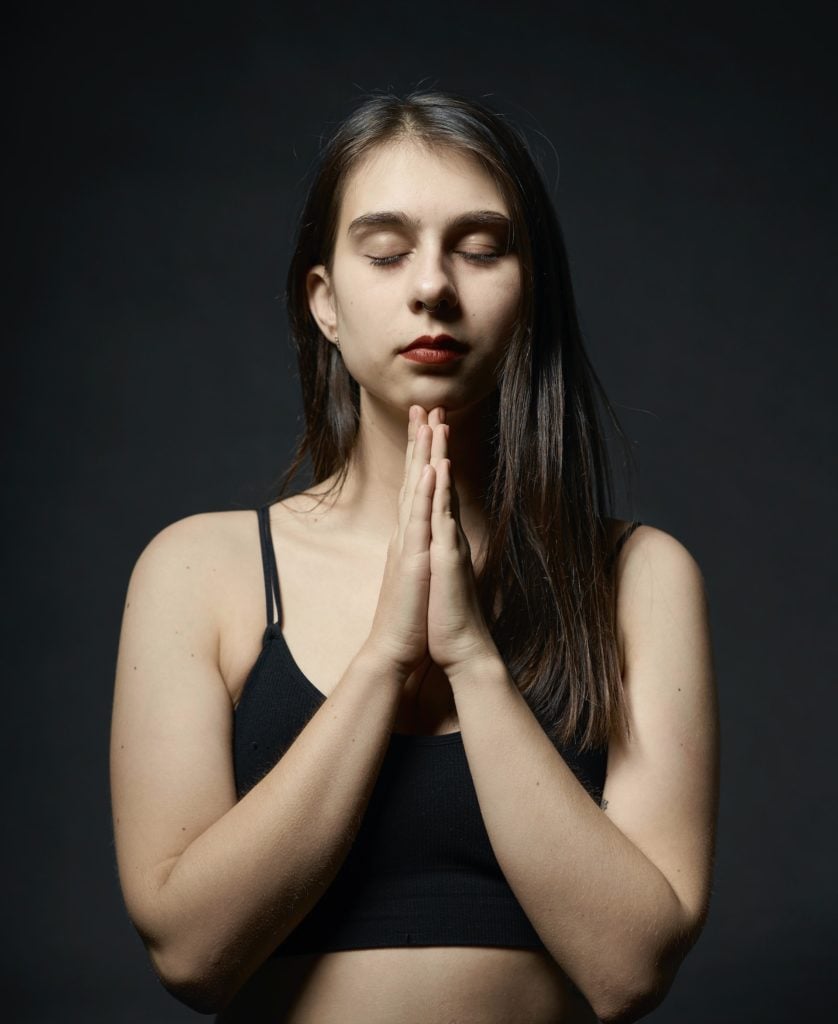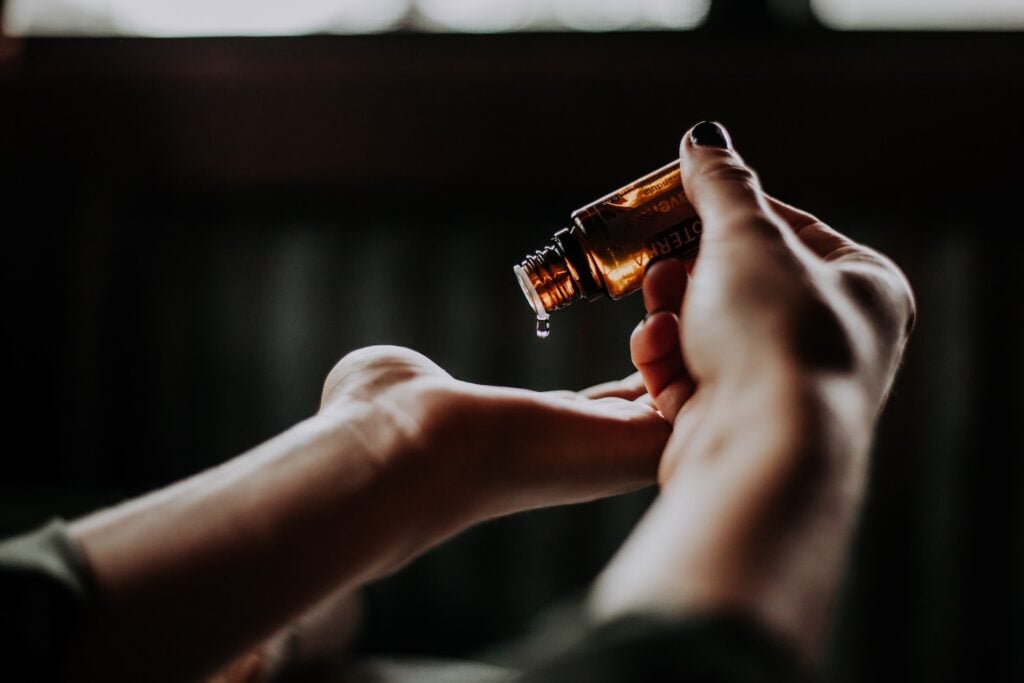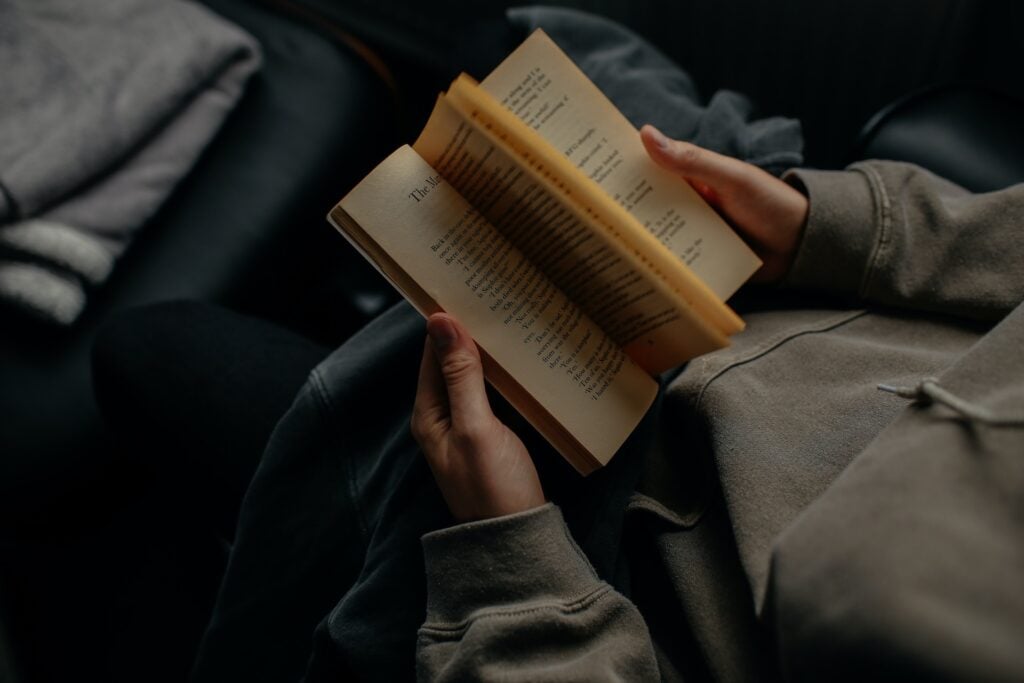
How to De-Role: 8 Techniques for Getting Out of Character
‘De-roling’ is simply how to get yourself out of character once you’ve finished performing. It’s the process of drawing a line between your character’s world and your everyday life. Often this process is quite simple; you walk off set, or leave the theatre venue, and get yourself home. If a role isn’t particularly emotionally demanding or doesn’t deal with traumatic themes, your de-roling process may not require specific attention at all. You may already be undertaking certain behaviour and habits that allow you to de-role quite seamlessly. But occasionally, a role requires a fair bit of emotional labour, or a theme within the story you’re telling is particularly dark, heavy, or even traumatic to address. For screen, you may be required to go real deep real quick, and for theatre, you’re required to sustain intense emotions in performance night after night (or day after day) over a long period of time.
Listen to the audio version of this article…
Below I’ve outlined some techniques you can try out for the next time you need to de-role. Currently, there is no scientific or research-based information in this field. Rather, these recommendations are based on anecdotal evidence and clinical experience. In writing this article, I’ve drawn from the work and resources of The Arts Wellbeing Collective.
#1 Literally De-Role
The first thing you’re going to want to do is to literally strip off your character. Get out of your costume, your shoes, and leave them at the theatre, or on set, if you can. Of course, this is standard practice in a professional setting where you’re not often permitted to take your costumes home. However, when working on independent or low budget projects, you’re often volunteering your own clothing for the production. Even though they may be your clothes, try to keep a distinction between work and home by leaving them at the venue. If that’s not possible, make a ritual out of packing the costume away into a bag to carry home. It may be tempting to walk home in your character shoes, especially when they’re your own, but creating boundaries, even symbolic ones, can be very effective in separating yourself from your character.
If your character has physical markings such as tattoos or scars or requires you to wear your make-up in a certain way, make sure that’s something you carefully remove, too. The aim here is to look and feel like yourself, and to feel separate to the character you’re leaving at the venue. The last thing you’re going to want is to look into the mirror, and see the character staring back at you through physical reminders. I personally find that a shower is the best way to wash that character away and to start winding down.
#2 Let’s Get Physical
The next thing you can do is get moving! It may be too late in the day for intensive exercise, especially if you’ve just finished a late show or shoot and you’re looking to wind down, but doing something physical can be a great way to get out of your character’s mindset, and into your own body again.
This part of the ritual can be as simple as shaking out your body – your arms, legs, feet, hands – before leaving the venue. If you’re so inclined, this can be returning home and doing a yoga routine to both wind down and reconnect with yourself – mind and body. If yoga’s not your thing, you can try going on a walk. If you get home quite late, have a little dance in your living room when you get home. If none of these options are available to you, don’t stress. This reconnection to your body can be achieved by finding a comfortable seat, closing your eyes, and taking some deep, calming breaths.

#3 Play That Funky Music
Actors will often make a character playlist to get themselves into character, so why not create one for getting out of character? Make a playlist of all your favourite songs and play them as you leave the venue, on your way home, or when you get home. If your character is a particularly dark or emotionally demanding role, it can be nice to compile all of your favourite upbeat and gleeful tunes for this playlist. Likewise, if your character lives in a world of high-octane energy, make this a soothing, chill playlist for mellowing out.
#4 Get Comfy
When you do get home, get yourself as comfortable as possible. Performances can be very physically draining. If, on top of that, your role is also psychologically and emotionally demanding, and you’ve had to spend some time socialising in the foyer after your show, you might be pretty wiped out by the time you get home. Strip off those jeans, and get yourself in your favourite, and most comfortable clothes. Think jammies, sweatshirts, trackies and fluffy socks. All of this familiarity and comfort will help signal to your body that you’re safe and that now is the time to relax and let your guard down. It might be nice to choose something to wear that makes you feel like yourself. This could be an old band shirt you sleep in, or your yoga pants; anything that makes you feel like you.
#5 A Scents of Self
Smells can be a very powerful way of shifting your emotional and psychological state. Our olfactory senses are closely related to our amygdala (our fear trigger centre) and our hippocampus (our memory centre). For this reason, smells can trigger emotional responses closely tied to memories, a phenomenon known as the Proust Effect. It can be useful for actors to establish a distinction between the character and themselves by choosing a perfume, or deodorant to wear on stage or on set while in character, that can then be removed as they de-role. Likewise, you can utilise a scent that is personal and familiar when you get home to remind yourself of your life and memories outside of this particular project or role.

#6 Phone a Friend
If you can, and if you have the energy for this, it’s a great idea to touch base with your family and friends after a particularly challenging shoot or live performance. This can be incredibly important for your mental health and is especially crucial if you happen to be on tour, or away from your family and friends for the project. Speaking to a loved one and asking them to tell you about the details of their day, especially the tiny and insignificant ones, can be a great antidote to the likely dramatic or epic arc of your character and performance. This is also a great opportunity to check in with someone who cares about you; if you are under pressure, or you are struggling with your mental health, it’s often those closest to us who will notice first, sometimes even before we notice ourselves. Therefore, it’s important to check in regularly with your friends and family, both to stay connected and grounded.
#7 Child’s Play
There is so much play in the work we do that sometimes we forget to allocate ourselves time for leisure outside of performing. Across the board, people tend to get into acting because they love and enjoy it, and when acting transitions from a hobby into work it’s a moment of great celebration. At the same time, something has been lost – a hobby. To keep your life in balance, make sure you keep up other hobbies outside of your acting work and use these to rejuvenate your mental health and sense of self. This can be anything – dancing, gardening, juggling, video games, reading, watching tv – but do be wary of activities that involve high amounts of screen time during the evening as they can negatively affect your sleep hygiene.

#8 Meditate
This is the final recommendation I’ll list here, but it is one of the most effective things you can do to de-role. Meditation has boomed in popularity in recent years, but there remains a lot of confusion about how to do it, and how it benefits your mental health. There are also so many different variations of meditation and slightly different schools of thought about how best to practice it. But broadly speaking, meditation is the practice of training your attention and awareness to achieve mental clarity and emotional stability. There are different techniques you can utilise to meditate: mindfulness, focusing on an object or sound, or even a mantra. The benefits of meditation are generous and infinite, and I would recommend it to everyone, especially actors. If it’s your first time meditating, an app can be very helpful in guiding you through your meditation.
I love the app ‘Waking Up: Guided Meditation and Mindfulness’ by Sam Harris, and ‘Headspace: Meditation and Sleep Made Simple’.
But there is a tonne of different meditation apps out there, so try a few and find which one works for you. Even five minutes of meditation can change the way your mind is functioning, making it a super efficient way to start the day right!
Conclusion: Stay Safe Out There
Above are some great habits and rituals for checking in with your mental health while working as an actor in a challenging role. But none of them are a substitute for protecting your mental health in the rehearsal room and throughout a performance. No one is allowed to make you feel unsafe, in any way, throughout the rehearsal or performance process. Your safety, both physically and mentally, should always be the top priority. No production is worthy of unsafe practices, and no person is allowed to demand anything of you that puts your mental health at risk. Thankfully, we are in the midst of a movement away from the exploitative ego-centric practices of the past, and the false idealism of ‘the struggling artist’. Respect yourself, and others, by setting high standards of self-care and by prioritising safety above all.
If you do find yourself struggling, please reach out for professional help and advice. And in an emergency, do not hesitate to call your country-specific helplines:
Australia – Lifeline Australia 13 11 14
United States – Lifeline 1 800 273 8255
United Kingdom – Samaritan Helpline 116 123
A list of crisis lines by country can be found here.
Do you have any techniques for de-roling and winding down that weren’t listed here? Tell us about them in the comments section.

Leave a Reply